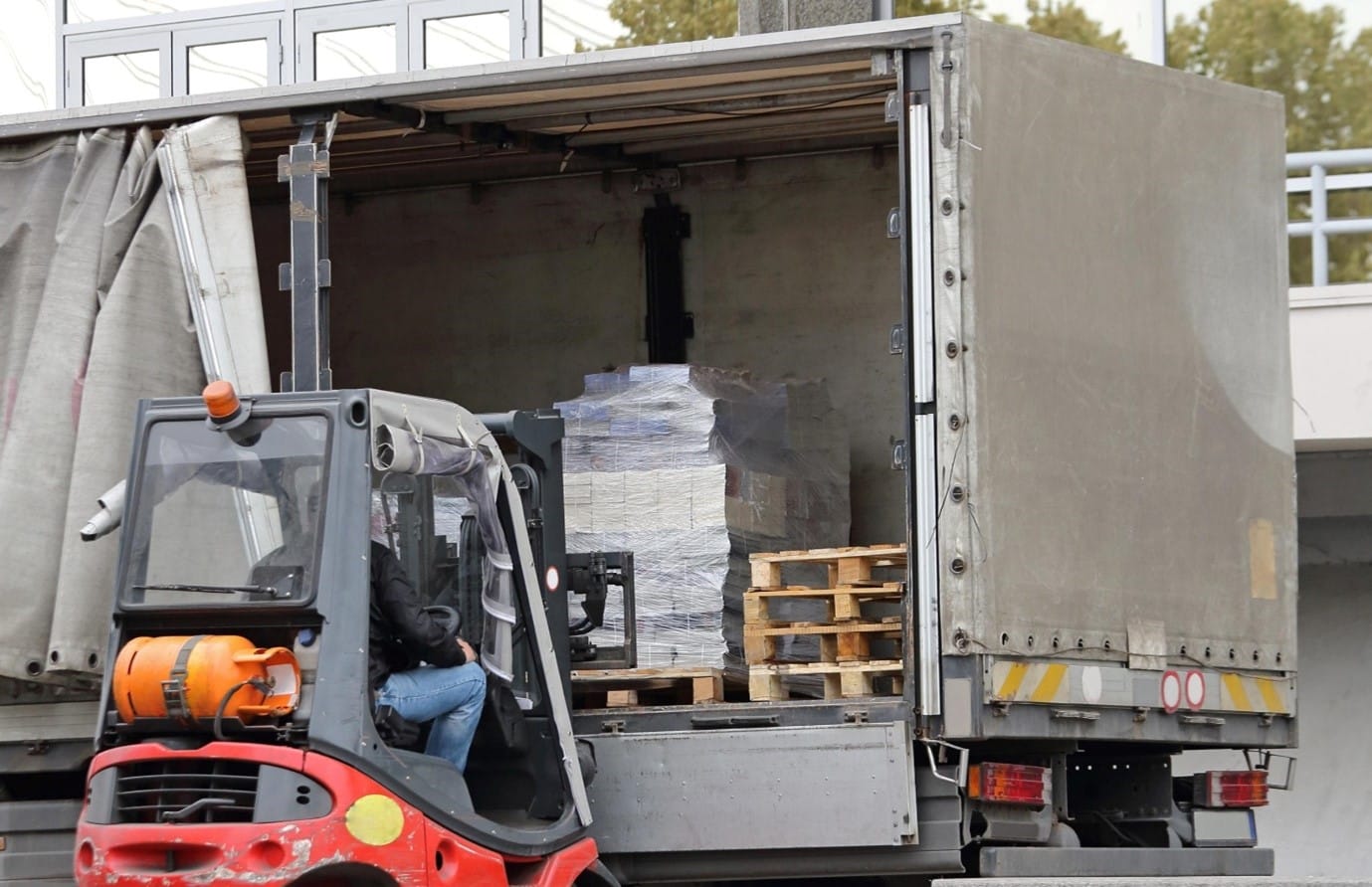You’ve likely heard the terms’ truckload and less than Truckload’ tossed around a lot in the shipping industry. But what do they really mean? Well, think of it like this. Imagine you’re ordering a pizza for a party.
If you have a large group, you’re going to order the whole pie—this is akin to truckload shipping, where you have enough goods to fill an entire truck. But what if it’s just you and a friend chilling on a Friday night?
You might just order a couple of slices—this is similar to less-than-truckload shipping, where you only need a portion of the truck’s space for your goods. That makes sense, right? We still need to dig more on the matter at hand to have a balanced understanding on the difference between truckload and less than truckload.
What Truckload Shipping (TL) Means
Some people also refer to it as full truckload (FTL), TL, or OTR (over the road). So, any time you hear any of the terms, it’s the same thing.
Simply put, truckload shipping refers to the shipment of a large amount of goods (at least 10 pallets) in one single container. Or when a whole truck is assigned to carry a single shipment. Of course, there are reasons why someone would opt for this.
For instance, if you have a large volume of goods and require them to be delivered at the same time, this would be your best choice. Or if you need expedited or specialized shipping for your high-value cargo, then TL will also suit your needs.
Furthermore, if the loads are delicate, time-sensitive, or hazardous, then there are special trucks for that too.
Note that, most times, you’ll find that your goods will fit perfectly into a pallet and can be safely transported. However, if you have odd-shaped items or items that need to be handled with extra care, you might want to opt for LTL instead.
What Less than Truckload (LTL) Means
As the name suggests, this is a form of freight where your shipment isn’t enough to fill a truck. In other words, you have goods not more than 8 pallets and less than 10 pallets.
In other words, for better understanding, truckload shipping is usually used when it’s necessary to ship a large amount of cargo, while Less Than Truckload (LTL) shipping is used when the shipment amount is relatively smaller.
We can also explain it as an alternative to use when there’s a need to combine multiple orders to ship together and save costs. It’s also an ideal option when you don’t want the entire truck for your shipment but rather a part of it.
So, if you have some items that need to be shipped that won’t occupy all the space in a single container, LTL will come in handy. The cost generally depends on the size of the shipment, and it is usually much cheaper than if you were to use an entire truck.
Differences Between Truckload and Less than Truckload
With the brief explanation we make about the two shipping types, it’s now time to look at the differences. Even without us explaining more about the TL and LTL, it is easy to understand what shipping you need depending on the size and weight of your cargo.
However, there are more to the differences than what we have discussed above. Let us show you more.
Different in Terms of Speed
One of the factors that differentiates TL and LTL is the speed. If you ship via truckload, your cargo arrives faster as compared to less than a truckload. This simply happens because there’s only one shipment, without having to wait for other consignments to be consolidated before delivery.
However, it all depends on your freight’s destination. For instance, if your cargo is being shipped to a remote or rural area, LTL will be faster as it doesn’t require more resources to access such places. Unlike in TL, your cargo might have to be transferred onto another truck or storage until it’s delivered.
Trustworthiness
Although, it depends on the transportation company you choose to use anyway. The best is to go for a professional logistics company to handle your goods, as they have all it takes to transport your goods perfectly without having any reason to be afraid of anything.
With them, you will have peace of mind, knowing fully well your goods will be delivered unscattered. That being said, Truckload shipments are more secure as the driver can monitor the goods from pickup to delivery with no other stops in between where there could be potential damage.
That being said, LTL has a few more stops between pickup and delivery. That is why you should consider using cargo insurance, as it helps protect against loss or damage during transit.
Cost Efficiency
Truckload is more expensive than LTL, and the reasons for that are as follows:;
- You need to fill up the whole truck, meaning a 1654 cubic feet container, which could be challenging and more costly as you’ll have to pay for empty spaces.
- It requires more specialized equipment and experienced drivers, which costs more than LTL.
On the other hand, Less Than Truckload is cheaper as customers are only charged for the space they use. It’s also more cost-effective if you’re shipping to multiple locations, as goods can be consolidated into one shipment. So, if you are looking for a cheaper option, then LTL is the right choice.
Partial Truck Space
Another tangible difference we take note of is partial truck space. This feature allows you to book a certain amount of truck space for your cargo; when shipping TL, it’s all or nothing. You can reduce the cost of transportation and make sure your shipment fits perfectly in the allocated space with the LTLs Partial truckload option.
Additionally, this feature also allows others to join in the shipment with their cargo. This way, they can share the cost of the entire shipment among themselves and save money on their shipping costs.
Risk of Damage
Here, TL has the edge as it spends less time in transit. This means that there are no other stops in between where there could be potential damage. That is not the case with LTL, as goods are loaded and unloaded multiple times in transit, which increases the risk of damage.
That being said, LTL has a few more stops between pickup and delivery. So, it is important to consider using cargo insurance as it helps protect against loss or damage during the transit.
Below is the table that shows the detailed differences between TL and LTL.
| Criteria | Truckload (TL) | Less than Truckload (LTL) |
| Definition | A shipment that fills a truck
completely and is dedicated to a single customer or company. |
A shipment that doesn’t fill a
truck completely and shares space with other shipments. |
| Shipment Size | Typically larger, often a full
truckload or close to it. |
Smaller shipments that don’t
require an entire truck. |
| Space in Truck | The entire truck is used for one shipment | Space is shared with others.
Shipments are divided by pallets or cubic feet. |
| Transit Time | Generally faster as it goes directly from source to destination without stops. | May have longer transit times
due to multiple stops and consolidation points. |
| Cost | Usually lower per unit due to economies of scale | Typically higher per unit due
to handling and consolidation. |
| Handling | Minimal handling, less risk of
damage or loss. |
Multiple handling increases
the risk of damage or loss. |
| Packaging | Goods are often palletized or
crated for stability. |
Goods may be individually
packaged and less stable. |
| Tracking | Easier to track as it’s a single shipment | Tracking can be more complex with multiple stops. |
| Ideal Use Cases | Suitable for large shipments, full truckload quantities, and businesses with high volume. | Ideal for smaller shipments,
partial loads, and businesses with variable shipping needs. |
| Shipping Cost Calculation | Typically, a flat rate or a based
on distance traveled. |
Calculated based on shipment
weight, dimensions, distance, and additional services. |
When to Choose TL or LTL Shipping
Should you be contemplating whether to choose TL or LTL shipping, we will quickly guide you on some of the things to consider knowing the best shipping option for you.
If Your Shipment is Time-Sensitive
If your shipment is time-sensitive, and you require it to arrive as soon as possible, then TL would be the better option. With LTL, shipments can take up to 48–72 hours longer than an equivalent freight in a full truckload because of multiple stops along the way.
If Your Shipment is Small
In the case of smaller shipments, LTL may be the more cost-effective option. It would mean packing your cargo in the shared truck with other shippers’ goods and making sure it is securely strapped, so there is minimal or no damage during transportation.
This way, you can take advantage of large truck savings without having to ship a full truckload. Just that the time of delivery may be longer than a TL shipment.
If Your Shipment is Large?
For large shipments, specifically of more than 10 pallets, it’s best to go with TL as the weight and cube of the cargo will fill up the entire truck. This way, you can have easy access to all your goods at any point in time. Also, it will take less time for the entire shipment to arrive at its destination.
If You Have Excessive Weight?
If your shipment is too heavy and doesn’t fit into the standard LTL weight limit, then TL is going to be the best option in this case, as it offers greater flexibility when it comes to shipping large shipments.
Plus, with TL you get dedicated service for the entire trip, meaning that you don’t need to worry about your goods being unloaded and reloaded multiple times in transit.
If You Need Flexible Delivery Dates?
For flexible delivery dates, it is best to go with less than truckload shipping services as they offer more flexibility when it comes to the delivery date. This way, you can specify a date that fits your shipping plan, and the carrier will be able to accommodate it. You can also book a delivery window, which is more convenient for you.
If Your Shipment Has Valuable Goods?
If your shipment contains valuable goods, then full truckload shipping is going to be the best option, as this will give you complete control over your products from start to finish.
With a TL shipment, you don’t need to worry about your goods being unloaded and reloaded multiple times, as they are in a dedicated truck for the entire trip. Plus, with all this control, you can rest assured that your valuable goods will arrive safely at their destination.
Final Thoughts
Without a doubt, the type of transportation you should choose for your shipment depends on various factors such as weight, delivery date flexibility, and valuable goods. After considering all these factors carefully, you will be able to make an informed decision about whether to go with TL or LTL for your shipment.
It is important to note that in some cases, it may be best to go with a mix of both TL and LTL to get the best combination of cost, flexibility, and control.
If you are still unsure which option is best for your shipment, then it is highly recommended to consult with a professional transportation company that can provide tailored advice about which type of transportation is most suitable for you.
With their help, you will be able to make the right decision and get your shipment safely to its destination. Moreover, if you decide to use a professional transportation company, make sure that they are experienced and offer reliable services at competitive prices. This way, you can be assured that your goods will reach their destination on time and in mint condition.















